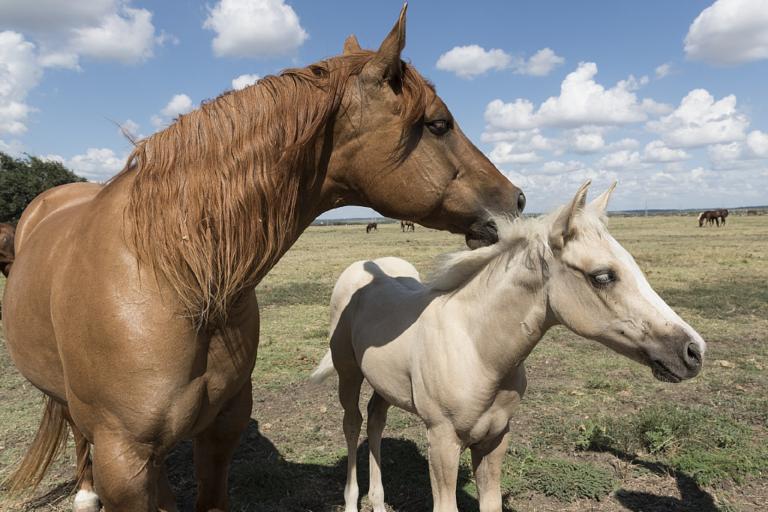Androgen Insensitivity Syndrome (AIS Horse)
→ Infertility and external female genitalia in male horses
Symptoms
- Affected horses (genotypic males) have external female genitalia.
- Underdeveloped uterus and underdeveloped, retained testes
- Infertility
- Typical male-like behavior
General Information
- Affected foals appear like normal females.
- Underdeveloped male and female genitalia result in infertility.
- Retained testes are usually surgically removed.
- A malfunction of androgen receptor (male steroid hormone) causes the syndrome.
- No other effects on health of affected horses are known.
Test information
This test detects the single basepair change in the AR Gen.
Genotype and Lab Report
Inheritance: X-chromosomal recessive
→ The affected gene is located on the X-chromosome. Females have two versions of this chromosome while males only have one. Males with this variant are affected by AIS. Females can be carriers of this variant (heterozygous, X/X-ais).
Genotype:
X/X = normal female
The mare has no genetic variant causative for the AIS and therefore cannot pass it on to its offspring.
X/X-ais = carrier female
The mare is clinically healthy. The genetic variant will be passed on to its offspring with a probability of 50%. If the variant is passed on to male offspring, the foal will be an affected male.
X/Y = normal male
The male has no genetic variant causative for the AIS.
X-ais/Y = affected male
The male appears to be a normal female but has the male genotype (XY) and is infertile.
Recommendations
- Offspring of a carrier female should be tested for their genotype (X/X or X/X-ais or X-ais/Y → affected male).
- Carrier females (X/X-ais) may be used for breeding but their male offspring have a 50% of being affected.
- Affected males (X-ais/Y) are infertile but otherwise healthy.
Literature
Révay, T., Villagómez, D.A., Brewer, D., Chenier, T., King, W.A.: GTG mutation in the start codon of the androgen receptor gene in a family of horses with 64,XY disorder of sex development. Sex Dev 6:108-16, 2012. Pubmed reference: 22095250. DOI: 10.1159/000334049.
Further information is available at Online Mendelian Inheritance in Animals.

